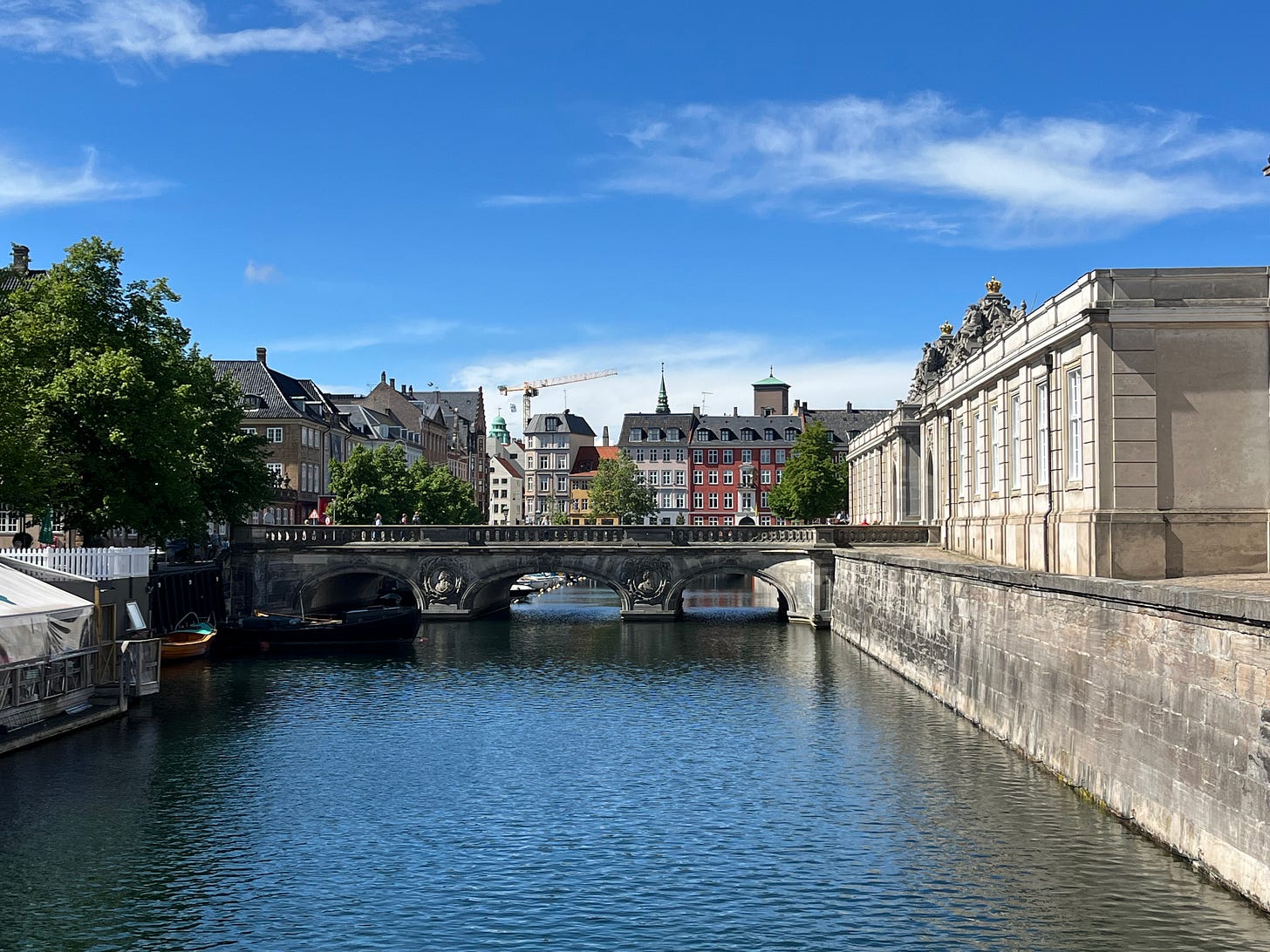Getting to Denmark
Probably the best immigration system in the world (or in western Europe, at least)
Denmark has long been the envy of the English-speaking world, viewed as a country that is not only notably wealthier than Britain but more egalitarian and sensible. They’ve had a notably ethical foreign policy over the years, having got off to a rocky start, and during the great civilisational crisis of the 20th century passed the test of nations.
There’s a lovely passage in Dominic Sandbrook’s children’s book about the Second World War, which I bought for my son, recalling one of the most uplifting stories in history. He wrote how: ‘When King Christian X heard that the Nazis wanted Denmark’s Jews to wear the yellow star, he said that, in that case, all Danes should wear one, whether Jewish or not. But in the autumn of 1943, a decent German official called Georg Ferdinand Duckwitz found out that the Nazis were planning to round up the Danish Jews and send them to the death camps. Duckwitz tipped off Denmark’s politicians and in the next few days they prepared a rescue plan.
‘Denmark’s Jewish population was small: just eight thousand or so. If they could get to neighbouring Sweden, which had stayed out of the war, they would be safe. But how could they do it without the Germans noticing?
‘At the end of September, the Danish leaders had a word with the Jews’ religious leader, the Chief Rabbi. On the morning of the 29th, the Rabbi told his congregation that they should go home, pack their bags and tell their friends. The Danes would take care of the rest. Two days later, when the SS burst into Jewish homes in the capital, Copenhagen, they found them deserted. The occupants had vanished.
‘All over the country, ordinary people had taken Jewish families into their homes, hiding them in cellars and attics, back rooms and summer houses. Like their King, they saw it as “a human and a national duty” to help their neighbours in their hour of need.’
Ordinary people, all volunteers, then helped take 7,500 people in boats across to the safety of Sweden. Ninety-nine percent of the country’s Jews survived the war - a tribute to a humane and civilised people.
It is because Denmark is seen in such a positive light that it took a while for the world to cotton on to the fact that it adopted a relatively firm line on immigration, something first noted by Paul Collier in the New Statesman, and to whom I was indebted when I wrote about the subject. This didn’t compute because Denmark was widely seen as a sensible, progressive country, and sensible progressive countries surely welcome immigrants – no people who like cycling could be evil.
The best explanation for Denmark’s stricter policy, as it was explained to me, was the cultural preference for openness in conversation, of allowing everyone to speak their mind even when it makes others uncomfortable; unlike the other Germanic countries, ours included, they would rather discuss sensitive issues in the open than turn the debate into a confusing mixture of euphemism and preference falsification.
I don’t know how widespread that view it, but it is certainly true that the Danish centre-left saw that runaway immigration was going to destroy them by haemorrhaging support to the radical right, as well as eroding the social solidarity that made redistribution palatable to the public – one of the arguments that the left-wing immigration-sceptic Collier made in his excellent book Exodus.
The policy wasn’t popular internationally, and when Denmark initiated new asylum rules in 2016 there was widespread outrage in the English-speaking media, with various commentators, politicians and activist charities comparing it to the Third Reich. After all, who can forget Nazi Germany’s strict immigration policy? It really put them outside of the boundaries of the civilised world; all those migrants from around the globe just trying to make a new life for themselves in Nazi Germany and those heartless bastards wouldn’t let them in.
Incredibly, this media catastrophising turned out not to be an accurate guide to events, and Denmark has not gone down some dark path as a result; Copenhagen recently overtook Vienna to become the best city in the world to live in, according to whoever decides these things.
Denmark still has its problems with immigration and integration - in 2023 the government banned the burning of the Koran, for example - but they are less critical than the issue is in Britain, France and Germany. Many conservatives are unhappy about multiculturalism there, but there aren’t enough unhappy people to throw politics into turmoil.
And the move paid off, politically: although they recently lost control of Copenhagen, Denmark’s centre-left are still in power, while at last year’s euro elections the radical Right Danish People’s Party won just 6 per cent of the vote, compared to Germany where nationalists were on 16 per cent, and have since risen further. This is what happens when politicians align with public opinion on the most important issue facing their country.
In Britain, the populist right is now polling at over 30 per cent and the centre is collapsing, one reason why Home Secretary Shabana Mahmood has announced a new policy to tackle illegal immigration framed as being Danish-inspired.



